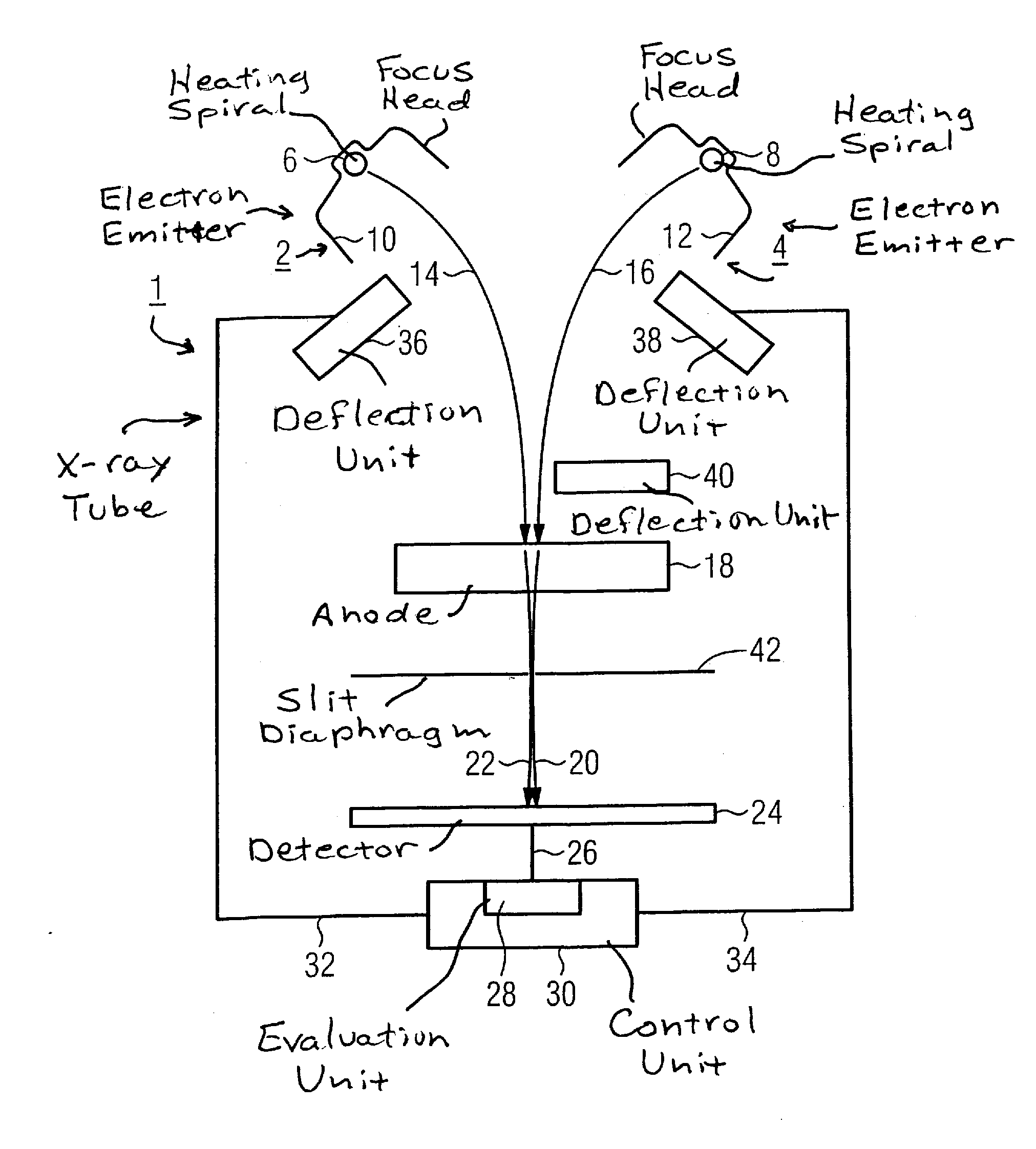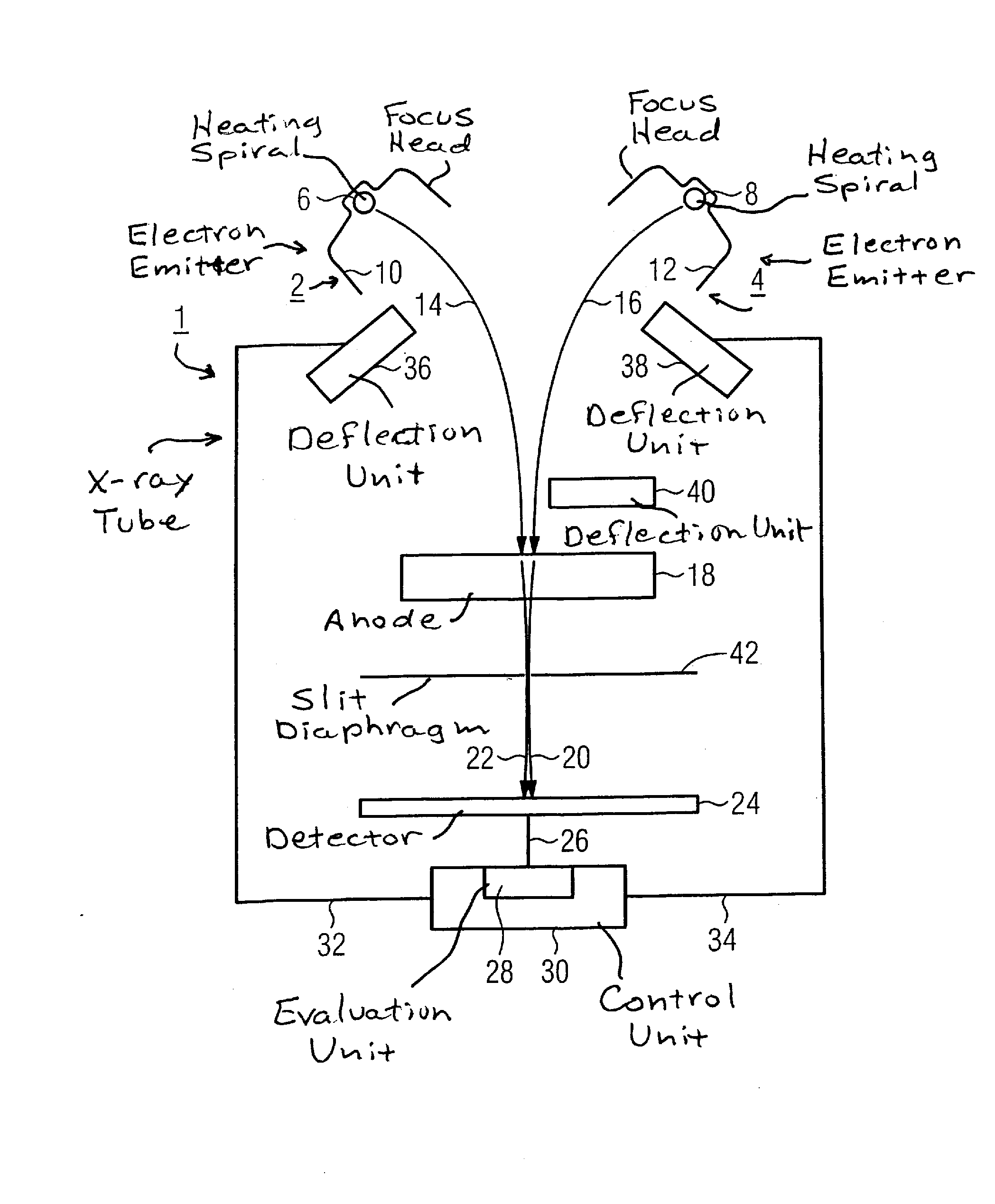Electron beam controller of an x-ray radiator with two or more electron beams
a technology of electron beams and electron beams, which is applied in the direction of x-ray tube multi-cathode assembly, electrical discharge tubes, x-ray tube multi-cathode assemblies, etc., can solve the problems of not using characteristic x-ray radiation the basic principle of x-ray generation has not changed, and the x-ray beam cannot be used in the medical use of x-ray tubes, etc., to improve the x-ray
- Summary
- Abstract
- Description
- Claims
- Application Information
AI Technical Summary
Benefits of technology
Problems solved by technology
Method used
Image
Examples
Embodiment Construction
[0021]The x-ray tube 1 according to the figure has two emitters 2, 4. These emitters 2, 4 respectively have heating spirals 6, 8 and focus heads 10, 12 for generation of electron beams 14, 16. These electron beams 14, 16 are deflected onto an anode 18. The electron beams 14, 16 are braked in the anode 18 and in particular generate x-ray bremsstrahlung in addition to the characteristic x-ray radiation and the transition radiation. The x-ray beams 20, 22 generated by this braking procedure in the anode 18 are mapped by a slit diaphragm 42 to a detector 24 with spatial resolution. This detector 24 measures the spatial distribution of the x-ray dose power or the intensity of the two superimposed x-ray beams 20, 22. The data measured in this way are sent from the detector 24 via a data line 26 to the evaluation unit 28 of a control unit 30. The evaluation unit 28 evaluates the data of the detector 24 with regard to the different moments of the distribution and passes the result to the co...
PUM
 Login to View More
Login to View More Abstract
Description
Claims
Application Information
 Login to View More
Login to View More - R&D
- Intellectual Property
- Life Sciences
- Materials
- Tech Scout
- Unparalleled Data Quality
- Higher Quality Content
- 60% Fewer Hallucinations
Browse by: Latest US Patents, China's latest patents, Technical Efficacy Thesaurus, Application Domain, Technology Topic, Popular Technical Reports.
© 2025 PatSnap. All rights reserved.Legal|Privacy policy|Modern Slavery Act Transparency Statement|Sitemap|About US| Contact US: help@patsnap.com


